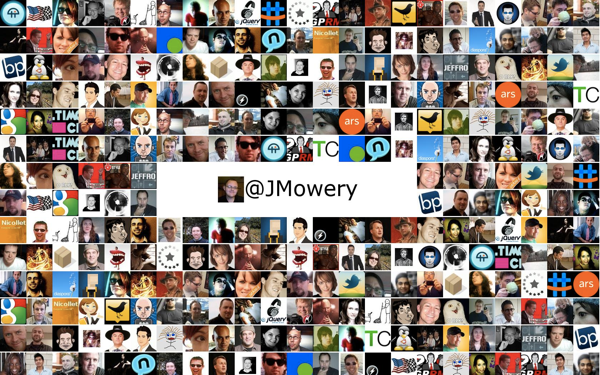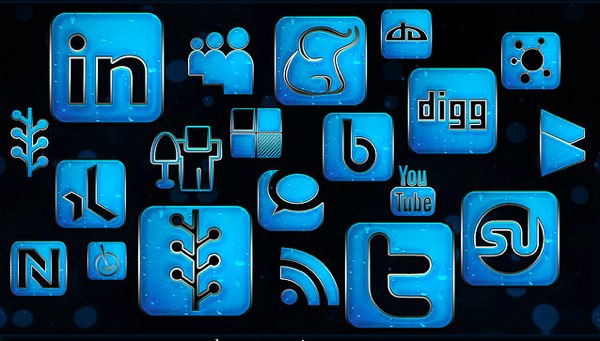I remove people from Twitter, Facebook, and other social networks on a daily basis — not by choice, but because there is too much information — but I never thought of the consequences. I always just assumed that there is an understanding between people in the digital age. But one day changed everything for me: I had removed someone who didn’t take it so lightly, and he made me feel guilt and pain that I had not felt since high school. What was I becoming?
He was nice to me. He engaged me in conversation, retweeted articles that I posted, and joined in on conversations that really got me thinking. It seemed like a genuine connection. Sounds like the perfect online friend, right? Well, there was something off.
The Drama
Long story short: he seemed to be one of those people who lived for attention. He would constantly retweet other people’s content who would promise to bring them more followers, which just loaded my Twitter (@JMowery) feed with junk. He was always on the verge of spamming people with random content and topics, just to gain more followers. I had around 900 followers; he had around 30. So I did, in fact, try to help him gain more followers: I participated in the follow friday thing on Twitter, tried to include him in on conversations with others, and so on.
Unfortunately, the spammy tweets continued. I, again, asked him before to consider stop retweeting spammy Tweets for the sake of attempting to gain more followers, which typically read something like “Please RT!!! I promise thousands of followers for everyone who RTs this!!!” But he just couldn’t help himself. I know he didn’t mean any harm, but I removed him anyways; I didn’t think twice about it.
The person in question, who I had never met before in person, messaged me repeatedly, asking what he did to deserve my “defriending” him. I explained, but it got me nowhere. Jerry Springer would have loved it. I, however, did not.
I ended up feeling guilty. But why?
The Guilt
Well, I am not, nor have ever been, Mr. Popular in social settings — I was the classic geek, who, in the comfort of his “command center,” hacked away at code all night while sleeping most of the day. I guess you could use the term “anti-social” to describe me in the past.
It is only in recent years when I have really opened up to new social experiences, most of which only happened after severe lifestyle changes — losing a massive amount of weight, getting out of my comfort zone, getting over the passing of my father, etc. I became a better person after all of this.
I know first hand what it means to lose a friend. I promised myself that I wouldn’t treat people the way that I used to be treated in the past (yes, high school can be rough on kids, and I’m no exception). Yet I discarded him like he meant nothing to me.
But did I ever actually considered this guy who I had met on Twitter a friend in the first place? I don’t know! But I do know that it brought back so many memories from the past. It also got me thinking about how far the Internet has come in connecting people and the conflicts surrounding Internet friendship.
Then again, I’m not even exactly sure how to define the word “friend” anymore.
The Definition of “Friend”
Sure, I am a big believer in Internet friendship; I do believe that two people can become great friends on the Internet, even without meeting each other in person. It is probably not too much of a stretch to say that I know more about the people I follow on Twitter than the handful of life-long friends I have in my closest social circles — even more strange is that I feel I have a better connection with some of these people.
I like to think that every one who I follow on Twitter, share stuff with on Facebook, and comment on their blog can be considered a friend. But is it the truth? Or is it just because I believe I am a genuinely nice guy?
What makes it even more difficult, however, is the fact that I don’t exactly know where these people place me in their social circle. Does this person consider me a friend if I simply follow him/her back on Twitter? Would that person be willing to dedicate time to help me with a problem if I really needed it? Is a single button click all that really separates us, or is there more? Should I really even care?
Well, I do care. I just don’t know how much I should care, which is why the situation with the person who I erased is that much more complicated.
The Unsolved Mystery
The conversations between the person who I defriended eventually ended completely. Who knows… maybe this very act could come back to haunt me in the future. Maybe this is the beginning of a complete social relapse? Maybe this only serves to highlight the potential controversy that will surround Internet friendships, especially as social media tools like Facebook, Twitter, FourSquare, and others bring us together more than we ever could have imagined.
And while I know someone will respond to this stating that all of this isn’t really a big deal — which I had initially thought it wasn’t, too — I must ask that person if that person cares for anyone he or she has met online. I know I do, and I, for one, am starting to have a change of heart about how I view people I talk to online.
If that person who I defriended was hurt enough to actually complain to me about the whole thing, then why shouldn’t I, at the very least, feel some bit of reservation about my action? He obviously thought of me as more than some random stranger who lives thousands of miles away. I failed to notice this. What if he really needed me?



He needed you, alright, but in a very selfish way. If he was using you to get more twitter followers, that makes him the Internet equivalent of the annoying acquaintance who sidles up to you at parties and puts his arm around you like you’re old pals, just because all the pretty, smart, cool people gravitate towards you and he wants a piece of that. That’s not friendship, online or off.
Have to agree with the above comment. Sounds like a smarmy spammer,I wouldn’t feel guilty at all.
I consider about 5% of the people I interact with online to be actual friends. If all you do is share information with each other, you’re acquaintances at best.
Enjoyed this article a lot, has different point of view than other stuff that I usually read on the web regarding social media. No hype down to the point, but you gave that person too much attention in my opinion…